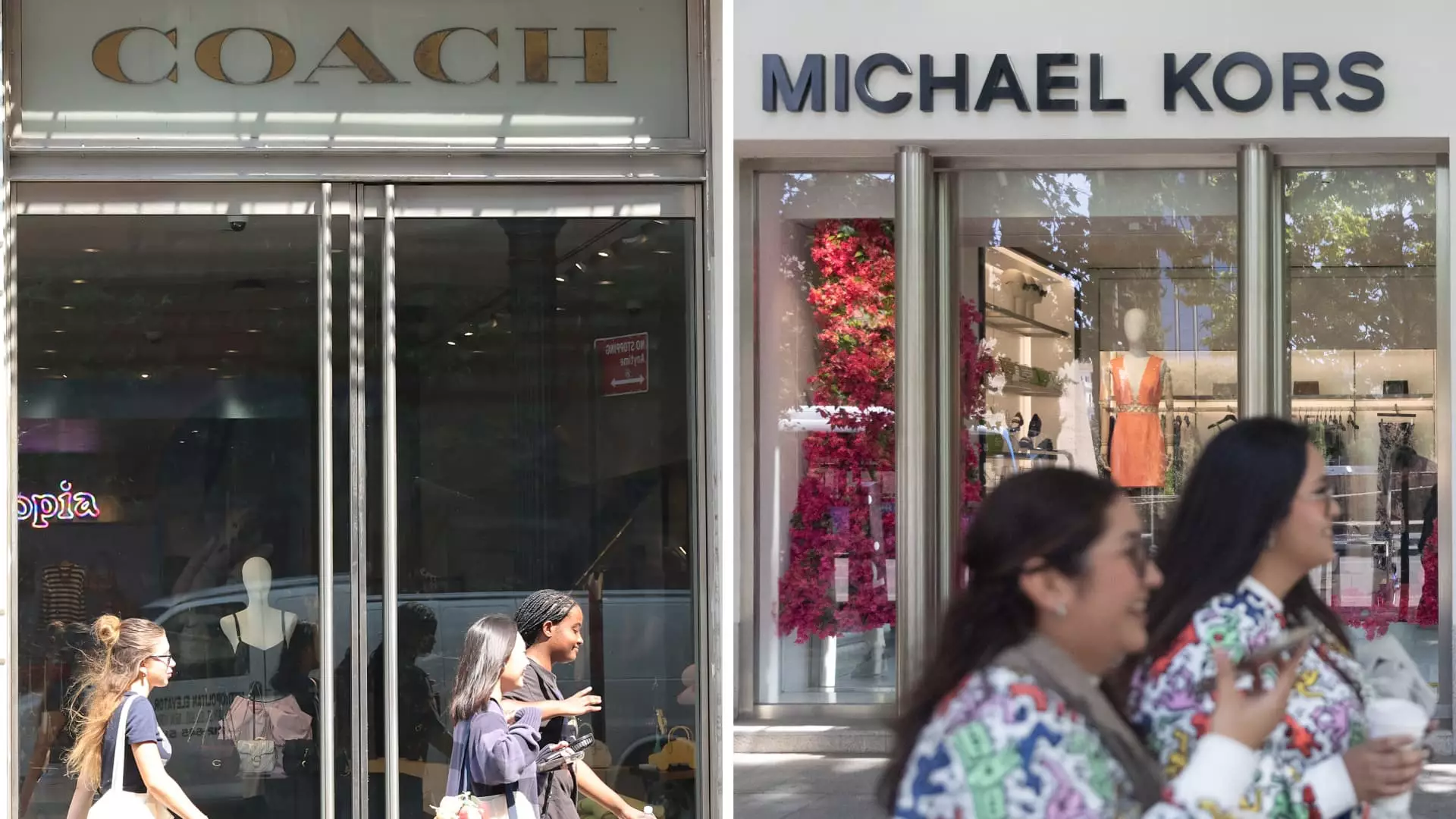On a recent Thursday, a significant development unfolded in the world of high-end fashion as a federal judge effectively halted Tapestry’s long-anticipated acquisition of Capri Holdings. The ruling, made by Judge Jennifer Rochon in New York, is a notable victory for the Federal Trade Commission (FTC), which has long argued that the merger would infringe upon competitive practices in the luxury market. This decision not only influences the two companies involved but sets a precedent that could affect future mergers in the industry.
The deal, valued at approximately $8.5 billion, aimed to merge Tapestry’s prominent brands—Coach, Kate Spade, and Stuart Weitzman—with Capri Holdings’ well-established luxury names: Versace, Jimmy Choo, and Michael Kors. This unification would create a powerhouse entity in the luxury fashion sector, boasting a portfolio of six major brands. However, prior to the merger’s agreement, the FTC raised concerns about its potential to diminish competition in a market already characterized by high prices.
During the preliminary injunction phase, Tapestry’s stock reacted positively to the initial announcements related to the merger, rallying by 10%. Conversely, Capri’s stock saw a dramatic plunge of about 50% post-ruling, shedding light on the market’s confidence in the outcome of this merger. Tapestry, firmly standing by the proposed agreement, has vowed to appeal this decision, claiming it contradicts both legal standards and the prevailing facts surrounding the competitive environment they navigate.
Tapestry has presented a compelling case, arguing that the merger would not only enhance their market efficiency but also benefit consumers overall. The company emphasized that the luxury fashion industry is bustling and competitive, noting the impact of both lower-priced and high-end products. Their statement underscored a belief that the merger would lead to more innovation, faster response to market trends, and ultimately, a better positioning to meet consumer demands.
On the opposing side, the FTC articulated that the merger would threaten consumer access to affordable luxury items. They expressed concern about the possibility of inflated prices for handbags and related accessories, which could diminish product quality and negatively impact employees. The agency insisted that allowing Tapestry and Capri to merge would reduce the competitive landscape of the market, not only harming consumers financially but also impairing employees through reduced wages and benefits.
The legal ramifications of this ruling extend beyond immediate stock performances. According to a securities filing, Tapestry agreed to compensate Capri for incurred expenses should the merger fail. This figure ranges from $30 million to $50 million, a substantial sum that highlights the serious financial stakes involved. Capri, meanwhile, faces an even heftier potential obligation: a breakup fee of $240 million if they opt to withdraw from the deal. These financial mechanisms further elucidate the severe risks and potential losses tied to the merger’s uncertain fate.
This ruling represents a broader shift in the regulatory landscape, particularly under the Biden administration and the leadership of FTC Chair Lina Khan. The FTC has adopted a more aggressive stance on merger evaluations, especially amid rising consumer price sensitivity in the aftermath of prolonged inflationary periods. This marks a departure from previous regulatory philosophies that were often more lenient toward corporate consolidations, signaling a potentially transformative era in how such deals are scrutinized.
As articulated by Henry Liu, head of the FTC’s Bureau of Competition, this ruling serves not just as a legal obstacle but as a protective measure for consumers, ensuring that access to quality luxury goods remains competitive and affordable. In an age where consumer sentiment is heavily influenced by price stability, this approach may resonate strongly with constituents who are ever more budget-conscious due to economic pressures.
Tapestry’s blocking acquisition of Capri is a pivotal moment in the luxury fashion market. It lays bare the ongoing tension between corporate consolidation and consumer protection—a dynamic that will likely define future regulatory actions. Moving forward, both companies face uncertain futures as they navigate the intricacies of this decision, with potential implications not just limited to their operations but also resonating throughout the industry. Whether Tapestry can successfully appeal the ruling remains to be seen, but for now, the FTC’s victory underscores the commitment to fostering competition and safeguarding consumer interests in a rapidly evolving marketplace.

